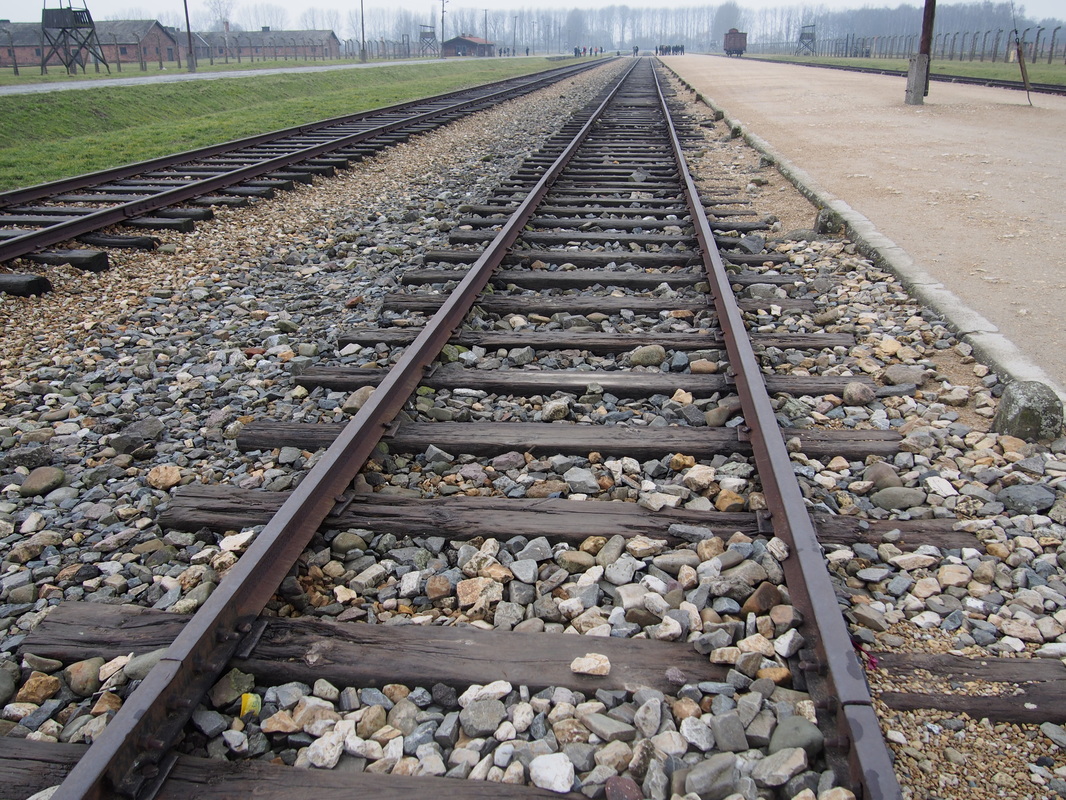The ongoing controversy about asylum seekers and migrants - and especially the plight of unaccompanied children in the Jungle at Calais - can't help but resonate for me with my father's experience in pre-war Germany.
In 1938, as a 13 year old Jewish lad he was sent by his parents from the town of Ratibor to England under the Kindertransport programme and re-settled in the UK.
Immediately, he was set to work on a farm in Derbyshire, while his 11-year old brother Werner who'd accompanied him was adopted by a family in Southampton and allowed to complete his schooling.
It's hard to imagine the mental anguish of an adolescent boy arriving in a strange country with an unfamiliar language, separated from his sibling by 200 miles and uncertain about what was happening to his family.
Yet however tough it was, my Dad's fate was certainly preferable to those he left behind. His mother, father, grandad, aunts and uncles all perished - with Auschwitz their final destination.
So I'm baffled that so many people ask, "How can parents send their kids, unaccompanied, hundreds of miles from home?" In most cases, I'm guessing it's because it gives those youngsters a way out of Hell and offers them at least a chance of survival.
A trip to Auschwitz is a grisly reminder of what can happen to those who stay behind.
I've been twice now, and the industrial scale of the extermination - the banal architecture of death - never fails to appal.
It was a destiny my Dad cheated only because of the singular generosity of the British people.
The likes of Syria, Afghanistan, Eritrea, or Somalia might not be directly comparable to Nazi Germany of course - and solutions that worked in the 1930's aren't automatically transferable to 2016 either.
But visiting this bleak, hideous death camp is a stomach churning, rage-inducing reminder that truly evil people sometimes do astonishingly terrible things.
What loving parent wouldn't want their kids to avoid the consequences of that.
In 1938, as a 13 year old Jewish lad he was sent by his parents from the town of Ratibor to England under the Kindertransport programme and re-settled in the UK.
Immediately, he was set to work on a farm in Derbyshire, while his 11-year old brother Werner who'd accompanied him was adopted by a family in Southampton and allowed to complete his schooling.
It's hard to imagine the mental anguish of an adolescent boy arriving in a strange country with an unfamiliar language, separated from his sibling by 200 miles and uncertain about what was happening to his family.
Yet however tough it was, my Dad's fate was certainly preferable to those he left behind. His mother, father, grandad, aunts and uncles all perished - with Auschwitz their final destination.
So I'm baffled that so many people ask, "How can parents send their kids, unaccompanied, hundreds of miles from home?" In most cases, I'm guessing it's because it gives those youngsters a way out of Hell and offers them at least a chance of survival.
A trip to Auschwitz is a grisly reminder of what can happen to those who stay behind.
I've been twice now, and the industrial scale of the extermination - the banal architecture of death - never fails to appal.
It was a destiny my Dad cheated only because of the singular generosity of the British people.
The likes of Syria, Afghanistan, Eritrea, or Somalia might not be directly comparable to Nazi Germany of course - and solutions that worked in the 1930's aren't automatically transferable to 2016 either.
But visiting this bleak, hideous death camp is a stomach churning, rage-inducing reminder that truly evil people sometimes do astonishingly terrible things.
What loving parent wouldn't want their kids to avoid the consequences of that.

 RSS Feed
RSS Feed
